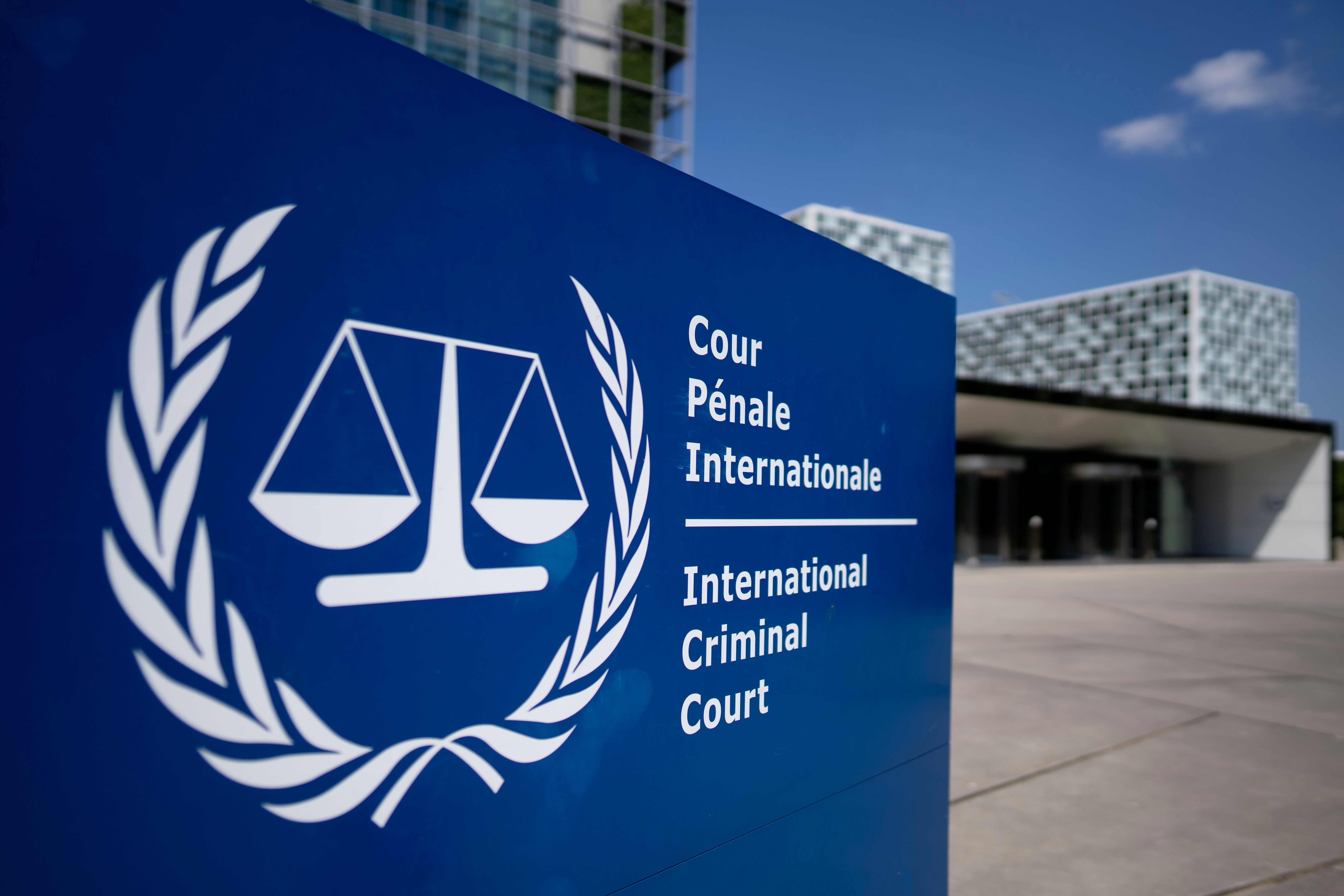International Criminal Court judges mulling arrest warrants consider legal arguments on jurisdiction
Dozens of countries, academics and rights groups have filed legal arguments either rejecting or supporting the International Criminal Court’s power to issue arrest warrants in its investigation into the war in Gaze and Oct. 7 attacks by Hamas in Israel

Your support helps us to tell the story
From reproductive rights to climate change to Big Tech, The Independent is on the ground when the story is developing. Whether it's investigating the financials of Elon Musk's pro-Trump PAC or producing our latest documentary, 'The A Word', which shines a light on the American women fighting for reproductive rights, we know how important it is to parse out the facts from the messaging.
At such a critical moment in US history, we need reporters on the ground. Your donation allows us to keep sending journalists to speak to both sides of the story.
The Independent is trusted by Americans across the entire political spectrum. And unlike many other quality news outlets, we choose not to lock Americans out of our reporting and analysis with paywalls. We believe quality journalism should be available to everyone, paid for by those who can afford it.
Your support makes all the difference.Dozens of countries, academics and rights groups have filed legal arguments either rejecting or supporting the International Criminal Court's power to issue arrest warrants in its investigation into the war in Gaza and the Oct. 7 attacks by Hamas in Israel.
The submissions filed this week come as a panel of judges considers a request by the court's chief prosecutor for warrants against Israeli Prime Minister Benjamin Netanyahu, Defense Minister Yoav Gallant, and the recently promoted leaders of Hamas.
The court’s prosecutor, Karim Khan, sought warrants in May, accusing Netanyahu, Gallant, and three Hamas leaders — Yahya Sinwar, Mohammed Deif and Ismail Haniyeh — of war crimes and crimes against humanity in the Gaza Strip and Israel.
Both Haniyeh and Deif have since been killed. Sinwar, Hamas' top official in Gaza who masterminded the Oct. 7 attacks, was subsequently named the group's new leader.
Israel strongly rejects the court's request for warrants for its leaders and insists it adheres to international law in the devastating conflict in Gaza that was triggered by the Hamas-led attacks.
Netanyahu called the request for warrants “a complete distortion of reality.”
The slew of written submissions is likely to delay a decision by a panel of judges on whether to issue warrants and comes despite a 2021 ruling that the court has jurisdiction over territories occupied by Israel in the 1967 Mideast war.
International law expert Owiso Owiso, said that he believes the issue “was already determined authoritatively in 2021 and ought not to have been resurrected.”
“So really, this is merely an academic exercise at best, and one massive waste of time and resources at worst,” he added.
Most of the legal arguments focus largely on the issue of whether the court’s power to issue warrants for Israeli leaders is overruled by a provision of the 1993 Oslo Accords peace deal. As part of the deal, the Palestinians agreed that they don't have criminal jurisdiction over Israeli nationals.
The accords, negotiated secretly in Norway, were meant to pave the way to a two-state solution between Israel and the Palestinians. The deal created the Palestinian Authority and set up self-rule areas in the Palestinian territories. The Palestinians seek the West Bank, east Jerusalem and the Gaza Strip — areas captured by Israel in 1967 — for a future state.
Among more than 50 filings, the opinions are divided over whether, under the terms of the deal, Palestinians can delegate the power to issue arrest warrants to the court.
Israel didn't file written arguments, but its staunch ally, the United States, did, arguing that the Oslo Accords “preserved in Israel exclusive jurisdiction over acts committed by Israeli nationals. Therefore, the Palestinians could not have delegated to the Court jurisdiction they never had.”
But others cautioned judges against accepting that reading of the accords.
“The ‘delegation’ theory would shatter the Court’s jurisdiction into 124 fragments, irregularly shaped by thousands of national laws and international agreements,” wrote Adil Haque, a professor of law at Rutgers University in Newark, New Jersey.
The ICC has 124 member states, including the State of Palestine. Israel and the United States aren't members and don't accept the jurisdiction.
The Palestinians argued in their written filing that accepting the argument “would usher in a new and retrogressive era of international order where politics and impunity prevail over justice and accountability.”
The United Kingdom was the first country to seek to file a written brief, but withdrew its request late last month after new Prime Minister Keir Starmer took office after winning a landslide election victory over the Conservative Party of Rishi Sunak, whose administration filed its request in June.
But the U.K. request triggered a host of other filings that are now under consideration.
The criminal case at the ICC is separate to an ongoing dispute at the International Court of Justice, which also is based in The Hague. In the ICJ case, South Africa, a longtime ally of the Palestinians, has accused Israel of genocide in the war in Gaza. That case is likely to take years to settle.
___
Molly Quell contributed to this report.